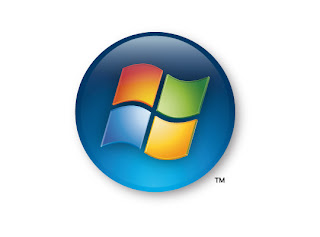Windows Vista: One Year Later
I have only used Microsoft’s Windows Vista a few times since its initial release to the public. I can say, the experience wasn’t anything to write home about. I found the operating system to be very confusing and it was not too easy to accomplish the functions as in Windows XP.
Even though many of the ideas seemed to have been adopted from the Mac OS X and Linux OS, I was not too impressed. An interesting article on Windows Vista has been attached below from
Earthtimes.org.
Some improvement needed a year after Windows Vista
Posted on : 2008-02-03 | Author : DPA
News Category :
Munich/Bonn, Germany - Windows Vista operating system celebrated its first birthday in late January, which means it's the perfect time for a system review. The system is probably running on about 100 million computers by now. While experts have found much to criticize, there are also a lot of positives to be noted.
A year of use shows that Vista is the best Windows operating system when it comes to security.
"Windows Vista is well protected against traditional attacks," says Thomas Caspers of the BSI Federal Office for Security in Information Technology. "But it's not perfect."
About 20 security gaps were discovered in Vista's first year which could have led to serious problems without timely patches from Microsoft.
One of the system's new functions is called User Access Control (UAC). UAC is designed to prevent attacks on system critical areas by requiring Vista to request confirmation of user registration for program installation.
While this is "a step in the right direction," many users find the process cumbersome, says Axel Vahldiek of "c't," a Hanover-based computer magazine.
According to Vahldiek, UAC needs to be improved so users don't need quite as many mouse clicks to make it work. System prompts also need to be more clear.
"It only makes cryptic references to string IDs. A lot of users don't know what to do with that."
Vista's startup procedure has garnered the most criticism, as the system has not been prepackaged with drivers for many programs and hardware.
"The situation has gotten noticeably better," says Vahldiek, with the exception of drivers for some older devices.
Microsoft has given Vista a positive review, but does admit that its introduction was not completely seamless.
"Above all, there were sometimes problems with older programs and older hardware," says Andreas Schoeberger, a product manager. But Microsoft has also registered a steady decrease in assistance calls to its support teams.
Experts remain dissatisfied with Vista's performance. Caspers notes that on tests with the same kind of hardware, Vista runs slower than either XP or Linux operating system Ubuntu.
Vista's first service package is supposed to hit the market in the first quarter of 2008. It will be a collection of updates designed to make the system more stable. There are also plans to speed up the system, though users of older PCs likely won't notice any difference.
Schoeberger said Service Pack 1 won't have any remarkable new functions. But it will remove RFM - reduced functionality mode - from the system.
RFM effectively renders the system inoperable if users don't register with a licensing key by a set deadline or if the manufacturer determines that the user is unlicensed. Caspers says users considering dropping Vista should wait until after the new service pack is released.
While concerns linger about Vista, there is no reason for XP users to worry that Microsoft will stop supporting them.
The "main support phase" does not expire until April 2009. Until then, updates and security patches, as well as new functions and service expansions, will be made available.
After that, a third and final service pack is scheduled for release during the first half of 2008, Schoenberger says. An expanded support phase will last through April 2014, during which Microsoft will continue to release security updates for XP.













